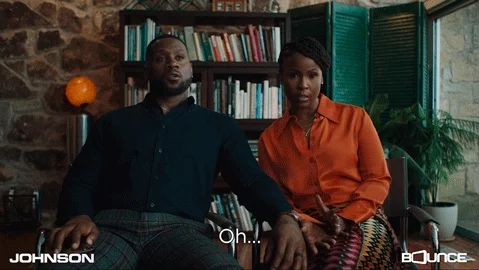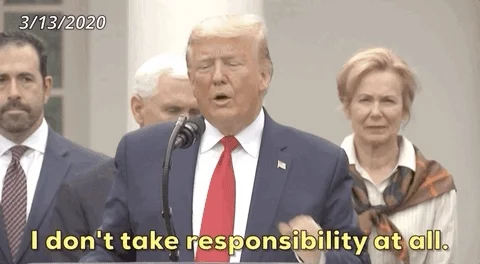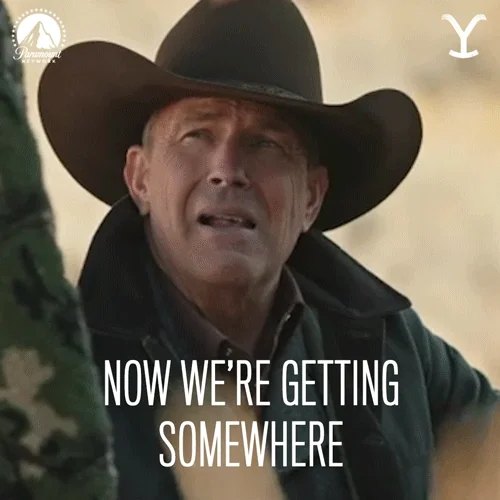Consider this situation...
When Jessie discovers the rent hasn't been paid, she asks her partner Ryan, "Why can't you be more responsible?"
"Well, you should have reminded me," responds Ryan. "Anyway, you forgot to make your student loan payment."
This is an example of how couples deflect ownership and blame each other.
How would you respond in this scenario?

Taking responsibility in a relationship means owning your words and actions. You can develop an atmosphere of mutual consideration, understanding, and trust in your relationship.
What Does Taking Responsibility Look Like?
In the video above, empathic coach Fraya Mortensen provides this simple advice:
Having a relationship with someone who refuses to admit doing anything wrong is extremely difficult. BUT change is possible:
Recognize your behavior, and take responsibility
Without responsibility, unresolved issues will get worse.
Understand Why Responsibility Matters
Dr. John Gottman, a leading relationship psychologist, says there are four behaviors — criticism, defensiveness, disdain, and stonewalling — that may predict breakup.

Why don't people act responsibly within their relationships? And what are the results of not acting responsibly? Here's an example from a couple, Charlie and Sinitta:
 Image from Canva via @tracey123art
Image from Canva via @tracey123art
This is Charlie.
It was Sinitta's birthday on the weekend, and she invited friends and family over for a BBQ. Sinitta waited all evening for Charlie to show. She felt abandoned.
Charlie finds it hard to take responsibility.
Self-image: Charlie feels the need to defend their self-image. They are never wrong.
Emotional avoidance: Charlie feels uncomfortable with difficult emotions such as guilt.
Fear of consequences: Charlie won't admit to being wrong because they fear punishment.
Social and cultural influence: Charlie grew up in a family that accepted blameshifting.
 Image from Canva via @tracey123art
Image from Canva via @tracey123art
This is Sinitta.
When Charlie finally arrived, they ignored Sinitta and headed straight to the fridge for beer. Charlie failed to acknowledge her or say happy birthday.
She feels hurt by Charlie's actions.
Resentment: Sinitta feels Charlie's defensiveness makes it hard to work through issues.
Emotional distance: Sinitta is tired of trying to fix things and begins to emotionally withdraw.
Unresolved Issues: Conflicts are unresolved and become bigger over time.
Loss of trust: Sinitta has begun to lose trust in the relationship.
How to Avoid "Pointing the Finger"

"Pointing the finger" is a common expression meaning shifting the blame to someone else, rather than taking responsibility.
It's not possible to have a solid relationship with someone you say you love and care about without taking responsibility for your actions.
How can a partner take responsibility for their actions in a relationship?
 Image from Canva @tracey123art
Image from Canva @tracey123art
Blaming ❌
"It's your fault. You're the reason we're always arguing."
"I lost my temper because you keep nagging me!"
"I forgot to buy milk, but you're always losing your phone. That's worse!"
 Image from Canva @tracey123art
Image from Canva @tracey123art
Taking Responsibility ✔️
"I can see that I have a role in this; how can we work through it together?"
"I apologize for losing my temper. Let's try and discuss this calmly."
"I forgot to buy milk. I'll go get some. Is there anything else you need?"
Quiz
Your partner complains that you are always working and you don't spend enough time together. What is the best response?
Try It!
Are you ready to start taking responsibility? Here are some strategies you can use to improve your relationship using examples from Charlie and Sinitta's scenario:

Quit the Blame Game
Admitting when you're at fault is a surefire approach to taking responsibility in a relationship. For example, Charlie could have explained they were late because they had to meet an important work deadline.

Respond, Don't React
Respond without becoming defensive. Sinitta could have questions and try to see things from Charlie's viewpoint. Charlie was probably embarrassed about arriving late, but instead of explaining it, they became defensive.

Apologize and Forgive
When partners practice saying sorry and forgiving each other, they can build trust and responsibility into their relationship through honest communication. Sinitta needed to hear Charlie's apology straight away.

Build Trust
Responsibility in a relationship means keeping your word. Show your partner you're reliable and dependable. They can promise each other that they'll communicate more clearly with each other in the future.
Take Action

Are you ready to get your relationship back on track?
Try the following steps:
Your feedback matters to us.
This Byte helped me better understand the topic.
